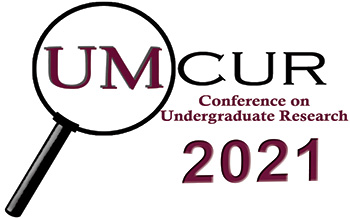Project Type
Presentation
Faculty Mentor’s Full Name
Laurie Minns
Faculty Mentor’s Department
Division of Biological Sciences
Abstract / Artist's Statement
Glioblastoma Multiforme (GBM) is an aggressive brain cancer that weakens brain function to the point where patients usually rely heavily on a caregiver. Oftentimes, the caregiver is a female spouse who is caring for her husband with GBM. However, few studies are specific to this caregiver’s emotional burden—in fact, they are typically adapted from studies of slower-progressing diseases like Alzheimer’s and dementia. GBM has a much shorter median survival time. The stress on caregivers in that generally shorter period is high. Mitigating the emotional burden may significantly contribute to longer, better survival outcomes for the GBM patient. For content analysis, 102 letters from wives who were the primary caregivers of their husbands were analyzed for key words relating to the emotional and psychological burden of caregiving. This study was approved by the Institutional Review Board of the University of Montana (IRB #224-19) and every participant gave informed consent for the inclusion of their letters. These letters were open-ended, but common themes were quickly established. The formed categories included feeling: anticipatory grief, anxious, confused, exhausted, false hope, fearful, isolated, stressed/overwhelmed, trauma, unheard/dismissed, and unprepared. The goal of this research is to bring awareness to the psychological disparities that contribute to a caregiver’s burden. These are issues that can be addressed by the medical community early on in the caregiver’s journey with glioblastoma patients, and it is crucial that they do so.
Category
Social Sciences
Psychological disparities contribute to emotional burden for caregivers of glioblastoma patients
Glioblastoma Multiforme (GBM) is an aggressive brain cancer that weakens brain function to the point where patients usually rely heavily on a caregiver. Oftentimes, the caregiver is a female spouse who is caring for her husband with GBM. However, few studies are specific to this caregiver’s emotional burden—in fact, they are typically adapted from studies of slower-progressing diseases like Alzheimer’s and dementia. GBM has a much shorter median survival time. The stress on caregivers in that generally shorter period is high. Mitigating the emotional burden may significantly contribute to longer, better survival outcomes for the GBM patient. For content analysis, 102 letters from wives who were the primary caregivers of their husbands were analyzed for key words relating to the emotional and psychological burden of caregiving. This study was approved by the Institutional Review Board of the University of Montana (IRB #224-19) and every participant gave informed consent for the inclusion of their letters. These letters were open-ended, but common themes were quickly established. The formed categories included feeling: anticipatory grief, anxious, confused, exhausted, false hope, fearful, isolated, stressed/overwhelmed, trauma, unheard/dismissed, and unprepared. The goal of this research is to bring awareness to the psychological disparities that contribute to a caregiver’s burden. These are issues that can be addressed by the medical community early on in the caregiver’s journey with glioblastoma patients, and it is crucial that they do so.
